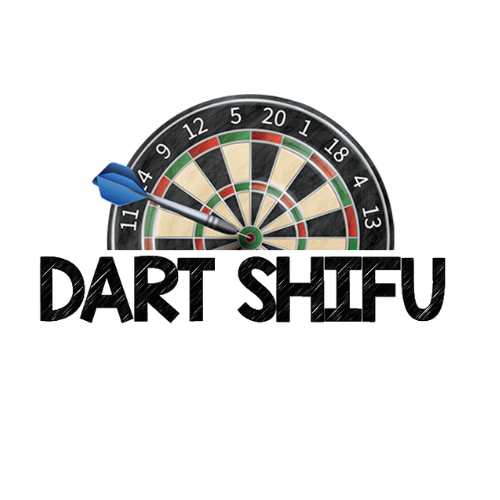Wondering how many hours a day to practice darts? According to expert Phil Taylor, beginners should aim for an hour, intermediate players for two, and advanced players for three to four. But it’s not just about the hours.
In this article, we’ll share tips and exercises to help you structure your practice sessions, improve your accuracy and consistency, and stay motivated. Whether you’re a seasoned player or just starting, this article has something for everyone. So, grab your darts, and let’s take your game to the next level!
Factors to Consider
When deciding how many hours a day to practice darts, you should consider your experience level, goals, and time availability. There are several factors to consider before planning your practices.
Beginner Darts Practice Tips
Experience level is an important factor to consider when deciding how many hours to practice darts. Beginners may need to practice more frequently than advanced players to improve their technique and get comfortable with the game. A beginner may need to spend more time practicing the basics such as proper grip, stance, and throwing technique. As they progress, they can reduce the amount of time spent practicing and focus on refining their skills.
Practice Goals for Darts Players
The goals that you have set for yourself in terms of playing darts should also be taken into consideration when deciding how much to practice. Casual players who only play for fun may only need to practice occasionally, while competitive players who aim to win tournaments or leagues may need to practice much more frequently. Competitive players should also set specific goals for themselves and practice accordingly. For example, if a player wants to improve their accuracy, they may need to spend more time practicing their aim.
Realistic Practice Commitment
Time availability is crucial when deciding how much to practice darts. It’s important to be realistic about the amount of time you can commit to practicing each day. You should consider your work or school schedule, family commitments, and other responsibilities when planning your practice time. Even if you only have a limited amount of time each day, it’s still possible to make progress and improve your skills by focusing on specific aspects of the game during each practice session.
By setting realistic goals and creating a personalized practice plan that works for you, you can improve your skills and enjoy the game of darts even more. Remember, practice makes perfect!
General Guidelines
when practicing darts, it’s important to follow these general guidelines. Incorporating these guidelines into your practice routine, you can make more progress and improve your darts skills in a more efficient and effective way.
Expert Dart Practice Advice
Experts suggest that practicing for at least 1-2 hours a day is a good starting point for improving your darts skills. However, it’s important to remember that this is just a general guideline, and the amount of time you should spend practicing may vary depending on your experience level, goals, and other factors. Beginners may need to spend more time practicing to get comfortable with the basics, while advanced players may be able to make progress with shorter practice sessions.
Focused Dart Practice Sessions
Breaking up your practice sessions into smaller, more focused sessions can be more effective than practicing for a longer period of time in one go. For example, instead of practicing for 2 hours straight, you could break it up into four 30-minute sessions throughout the day. This allows you to stay focused and maintain your energy levels throughout each session, which can lead to more productive practice sessions.
Effective Dart Practice Techniques
Lastly, when practicing darts, it’s important to focus on quality over quantity. Instead of just throwing darts aimlessly, you should focus on specific skills or techniques that you want to improve. For example, if you’re working on your accuracy, you could practice hitting specific targets on the dartboard or focusing on hitting certain areas consistently. By focusing on specific skills or techniques, you can make more progress in a shorter amount of time and avoid getting bored or burned out from practicing.
Personalized Practice Plans
When creating a personalized practice plan for darts, it’s important to assess your strengths and weaknesses, set specific goals, and plan out a practice schedule that works for you. By focusing on areas that need improvement, setting clear goals, and prioritizing your practice time, you can make more progress and improve your darts skills in a more efficient and effective way. Remember, consistent and focused practice is key to becoming a better darts player!
Assess your strengths and weaknesses
It’s important to assess your strengths and weaknesses when creating a personalized practice plan for darts. This allows you to focus on areas that need improvement and make progress more quickly. For example, if you’re struggling with hitting certain areas on the dartboard, you could focus on practicing those specific shots to improve your accuracy in those areas. On the other hand, if you’re confident in your accuracy but need to work on your consistency, you could focus on practicing your technique and maintaining your form throughout your throws.
Set specific goals
Setting specific goals is essential for creating a personalized practice plan for darts. By setting clear and achievable goals, you can stay motivated and track your progress over time. For example, if you want to improve your overall score, you could set a specific goal of increasing your average score by a certain number of points each week. This gives you a tangible goal to work towards and helps you stay focused on your practice sessions.
Plan out a personalized practice schedule
Planning out a personalized practice schedule that works for you is crucial for making progress in darts. This allows you to prioritize your practice time and ensure that you’re consistently working towards your goals. For example, you could set aside specific times each day or week for practice, and focus on different areas of your game during each session. By creating a personalized practice schedule, you can ensure that you’re making the most of your practice time and improving your skills more efficiently.
Additional Tips
When practicing darts, there are several additional tips you can follow to improve your skills and make practicing more enjoyable. These tips include getting a practice partner, trying different practice routines, and taking breaks to avoid burnout. This will help you to make more progress and improve your darts skills in a sustainable and enjoyable way.
Get a practice partner
Getting a practice partner can be a great way to improve your darts skills. Practicing with someone else allows you to get feedback on your technique and learn from each other’s strengths and weaknesses. Additionally, playing against someone else can help you develop your strategy and improve your game sense. Whether you’re practicing with a friend or a teammate, having a practice partner can make practicing more fun and engaging.
Try different practice routines
Trying different practice routines can help you avoid getting bored or stuck in a rut with your practice sessions. There are many different practice routines you can try, such as practicing specific shots, playing different games, or even incorporating physical exercises into your practice routine. By mixing up your practice routine, you can challenge yourself and keep your practice sessions interesting and engaging.
Take breaks to avoid burnout
Lastly, taking breaks to avoid burnout is important for maintaining your motivation and energy levels during practice. Practicing for long periods of time without taking breaks can lead to fatigue and burnout, which can make practicing less effective and enjoyable. Taking short breaks between practice sessions or taking a day off from practice altogether can help you recharge and come back to practice feeling refreshed and energized.
Practice Makes Perfect – How much should you practice at darts?
FAQ
Can I practice too much?
Yes, practicing too much can lead to fatigue and burnout, which can harm your performance. It’s important to take breaks and listen to your body to avoid overtraining.
Should I practice every day?
Consistency is key to improving your darts skills, so practicing every day can be helpful. However, it’s important to listen to your body and take rest days as needed.
Can I practice without a dartboard?
Yes, there are many drills and exercises you can do to improve your darts skills without a dartboard. For example, you can practice your grip, stance, and throwing motions using a mirror or video recording.
How long does it take to see improvement?
The rate of improvement varies from person to person, but consistent practice and dedication can lead to a noticeable improvement in a few weeks or months.
What should I focus on during practice?
Focus on improving specific skills or techniques, such as accuracy, consistency, or hitting specific targets. It can also be helpful to set specific goals for each practice session to track your progress over time.
Final thoughts
it’s important to emphasize the importance of practice in improving one’s darts game. Practicing regularly and focusing on specific areas of your game can help you make real progress and see improvement over time. Whether you’re a beginner or an advanced player, there’s always room for improvement in darts.
By following the guidelines and tips outlined in this article, readers can create a personalized practice plan that works for them and make more progress in their darts game. So, start practicing regularly, and remember, consistent and focused practice is the key to becoming a better darts player!

